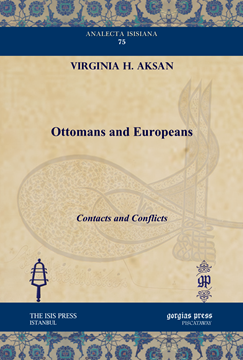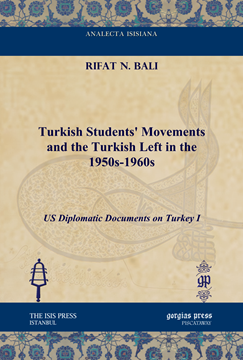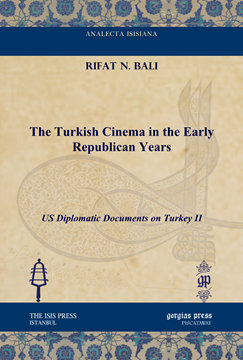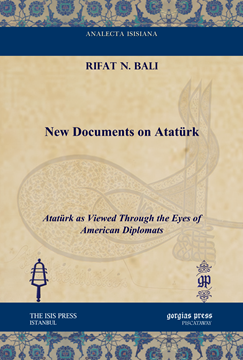The Passage from the Ottoman Empire to the Nation-States
A Long and Difficult Process: The Greek Case
ISBN:
978-1-61719-129-9
This collection of papers describes the transition of the Ottoman Greek community into nation states (Greece and Cyprus). The author explores the relationship between the religious and the national in the Ottoman context.
$140.00 (USD)
Ottomans and Europeans
Contacts and Conflicts
ISBN:
978-1-61719-130-5
This collection of articles by Virginia Aksan explores the contacts and conflicts between Ottomans and Europeans through the centuries.
$148.00 (USD)
The Idea of State in pre-Islamic Turkish Thought
By Ayhan Biçak
ISBN:
978-1-61719-131-2
Ayhan Biçak’s study of Turkic thought is constructed around understanding their pre-Islamic notions of the state.
$118.00 (USD)
Rumeli under the Ottomans, 15th-18th Centuries
Institutions and Communities
ISBN:
978-1-61719-133-6
Gradeva’s book is a collection of articles on the Ottoman Balkans which look at the administrative structures and inter-communal relations of the region.
$175.00 (USD)
I Kath'inas Anatoli
Studies in Ottoman Greek History
ISBN:
978-1-61719-134-3
I Kath’imas Anatoli is a collection of papers by Richard Clogg on the Greeks inhabiting Ottoman Anatolia.
$184.00 (USD)
Social Practice and Political Culture in the Turkish Republic
ISBN:
978-1-61719-135-0
This volume collects the work of Michael E. Meeker on Turkish society. Meeker’s research is based on field work he conducted in rural Turkey in the 1960s and then in Istanbul in the 1980s. Meeker’s interest is in how Turkish social conventions imply structures of political authority. In Turkey, formal institutions and interpersonal association have a close relationship, something which dates back to Ottoman times. The first two sections are devoted to the Black Sea Turks in general and then the Black Sea district of Of. The third part is devoted to Meeker’s writings on an Islamic resurgence in Turkey. The fourth and final part contains articles on political authority and interpersonal relationships in Turkey, past and present.
$174.00 (USD)
British Public Opinion Towards the Ottoman Empire During the Two Crises
Bosnia-Herzegovina (1908-1909) and the Balkan Wars (1912-1913)
ISBN:
978-1-61719-136-7
Sevtap Demirci looks at the Bosnia-Herzegovina crisis and the Balkan Wars and how they affected British public opinion towards the Ottoman Empire just prior to WWI.
$110.00 (USD)
Turkish Students' Movements and the Turkish Left in the 1950s-1960s
US Diplomatic Documents on Turkey I
ISBN:
978-1-61719-137-4
This volume contains a collection of documents composed by American diplomatic representatives in Turkey concerning leftist and student movements during the Cold War.
$118.00 (USD)
The Turkish Cinema in the Early Republican Years
US Diplomatic Documents on Turkey II
ISBN:
978-1-61719-138-1
Rifat Bali has collected in this volume several American consular reports concerning the state of early Turkish cinema, including a previously-unpublished report by the .American embassy in the 1930s.
$133.00 (USD)
New Documents on Atatürk
Atatürk as Viewed Through the Eyes of American Diplomats
ISBN:
978-1-61719-139-8
Rifat Bali’s collection of American consular reports concerning Mustafa Kemal Atatürk make an important new contribution to the study of the man and his personality.
$132.00 (USD)









